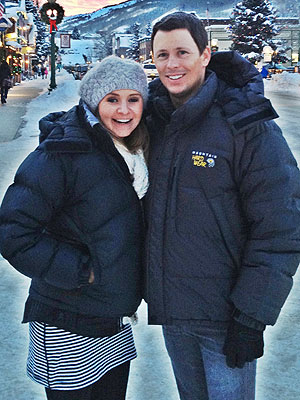FORT MEADE, Md. — The military judge overseeing the prosecution of Khalid Shaikh Mohammed and four other detainees accused of aiding the Sept. 11 terrorist attacks ordered the government on Thursday to disconnect the technology that allows offstage censors — apparently including the Central Intelligence Agency — to block a public feed of the courtroom proceedings at Guantánamo Bay, Cuba.
The order by the judge, Col. James L. Pohl of the Army, followed an interruption on Monday of a feed from the military tribunal courtroom during a hearing on a pretrial motion. The episode brought to light that unidentified security officials outside the courtroom could censor a feed of the proceedings that the public and the news media receive on a 40-second delay.
“This is the last time,” Colonel Pohl said, that any party other than a security officer inside the courtroom who works for the military commission “will be permitted to unilaterally decide that the broadcast will be suspended.”
He said that while some legal rules and precedents governing the tribunals might be unclear, there was no doubt that only the judge has the authority to close the courtroom. Colonel Pohl made clear he would not tolerate anyone having control over a censorship button in the case other than his courtroom security officer.
Separately on Thursday, Colonel Pohl ordered the Pentagon official in charge of the tribunals — Vice Adm. Bruce MacDonald, retired — to testify at a hearing next month. Defense lawyers are seeking to scuttle the charges and reboot the case, asserting that his original decision to refer the capital charges to the tribunal was flawed.
One of several relatives of victims who traveled to Guantánamo to watch the hearing, Phyllis Rodriguez, whose son Gregory Rodriguez was killed at the World Trade Center, said she was disturbed by the limits on the openness of the proceedings and difficulties that defense lawyers had in gathering information that could mitigate against death sentences. Ms. Rodriquez said she opposed death sentences on principle and was opposed to prosecuting the case in a tribunal.
But Matthew Sellitto, whose son — also named Matthew — was also killed in the attacks, called the process fair, saying the defendants would have already been executed by now in most countries. His wife, Loreen Sellitto, urged defense lawyers not to delay the proceedings, while describing the emotional experience of seeing the defendants in the courtroom.
“I didn’t expect them to look normal and have normal faces,” Ms. Sellitto said. “That scared me.”
In a related development, the Pentagon disclosed that earlier this week, Admiral MacDonald withdrew tribunal charges against three other detainees at Guantánamo. Accused of conspiracy and of providing material support to terrorism in connection with allegations related to explosives training, the three were among those arrested in a March 2002 raid in Pakistan that also captured a more prominent terrorism suspect, Abu Zubaydah.
The validity of bringing charges of material support and conspiracy in a tribunal — at least for actions before October 2006, when Congress approved them as triable offenses in a military commission — has been a point of sharp contention inside the Obama administration. A federal appeals court recently vacated two such verdicts from tribunal cases because such offenses were not recognized as international war crimes.
The chief tribunal prosecutor, Brig. Gen. Mark S. Martins, had asked Admiral MacDonald to withdraw conspiracy as one of the charges pending against the Sept. 11 defendants and focus on classic war crimes, like attacking civilians. But Admiral MacDonald refused, saying it would be “premature” to do so since the Justice Department — over General Martins’s objections — is still arguing in court that conspiracy is a valid tribunal offense.
Most of the attention on Thursday, however, was focused on continuing fallout from the revelation that there were offstage censors — something that even Colonel Pohl apparently had not known — and his order to “unconnect whatever wires need to be unconnected.”
Defense lawyers used the incident as new ammunition in their assertions that the tribunals are unfair.
On Thursday they asked Colonel Pohl to stop any further consideration of motions in the case until they all could learn more about what kind of technology is in place in meeting rooms and in the courtroom, and whether their confidential conversations with their clients and one another are private.












